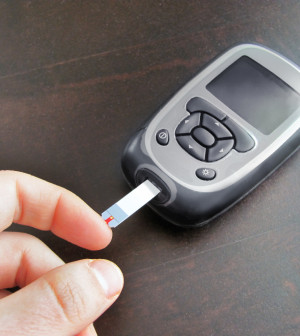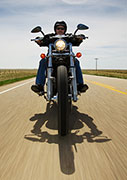Don't Miss
- Could Your Grocery Store Meat Be Causing Recurring UTIs?
- Are You Making This Expensive Thermostat Error This Winter?
- Recognizing the Signs of Hypothyroidism
- 10 Strategies to Overcome Insomnia
- Could Artificial Sweeteners Be Aging the Brain Faster?
- Techniques for Soothing Your Nervous System
- Does the Water in Your House Smell Funny? Here’s Why
- Can a Daily Dose of Apple Cider Vinegar Actually Aid Weight Loss?
- 6 Health Beverages That Can Actually Spike Your Blood Sugar
- Treatment Options for Social Anxiety Disorder
Expert Offers Motorcycle Safety Tips
By LadyLively on July 6, 2014


For many people, a long holiday weekend means a chance for a long motorcycle ride. But, do you know all you need to know about motorcycle safety?
“The feeling you get while riding is indescribable; however, it can change in the blink of an eye,” riding enthusiast and registered nurse, Carol Bullard, cautioned in a Wake Forest Baptist Medical Center news release.
Bullard, who also teaches a motorcycle safety class, offers these tips for motorcycle riders:
- Run through “what if” scenarios before you ride. What if a vehicle is at an intersection blocking your path? What if a dog runs out in front of your motorcycle? What will you do?
- Wear a helmet. Check its fit and make sure it meets proper U.S. Department of Transportation standards.
- Wear protective clothing. Long pants and sleeves can minimize road rash from accidents, especially if they’re armored, made out of leather, or both. And they can protect against sunburn. Closed-toed, over-the-ankle shoes or boots can prevent injuries to feet and ankles, and reflective clothing can help drivers to see you.
- Be cautious about road and weather conditions. Be especially careful when you encounter gravel or slick roads. Carry rain gear at all times.
- Communicate. Let someone know your route and plans before you ride, and keep members of a group ride informed about any medical conditions you may have. That allows other members in the group to alert emergency responders about any special issues in case of an accident.
- Take a safety course. These courses may be offered in your area by community colleges, motorcycle dealers or law enforcement agencies.
More information
For more about motorcycle safety, visit the U.S. National Highway Traffic Safety Administration.
Source: HealthDay
Copyright © 2026 HealthDay. All rights reserved.










